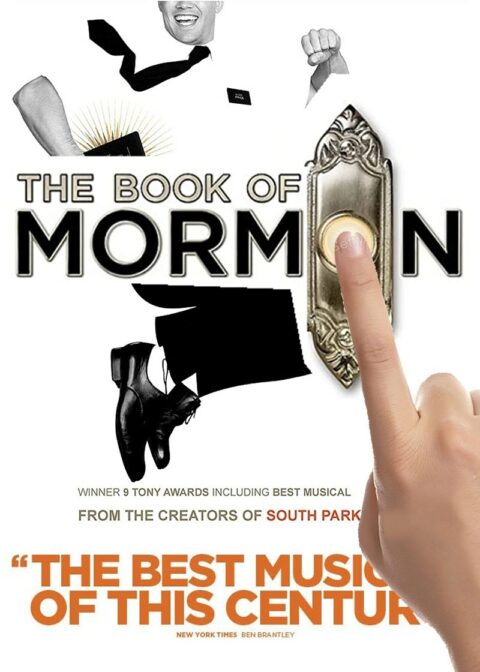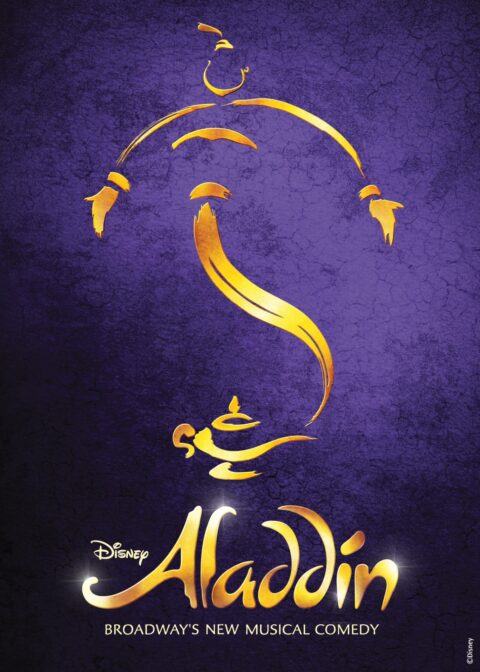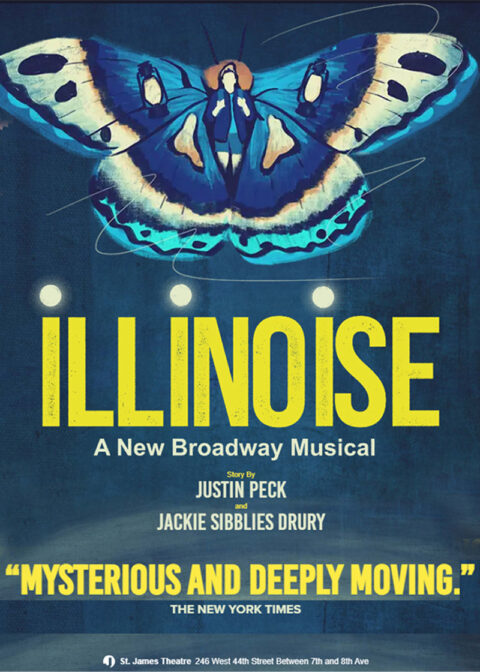It Is No Secret That Broadway Shows With The Financial Backing From Celebrities Have A Much Lower Rate Of Success As The Show May Be More About Their Ego Than Art
Celebrities Show Their Interest in Broadway
Broadway can be alluring to celebrities who fancy themselves to be great actors, directors, or producers on the Great White Way. The reality is that Broadway can be a very tough industry in which to excel, and the difference between a total success or abject failure can be just a few percentage points. Those who may not have the cojones to actually get on the Broadway stage eight times a week (and the discipline to continue this for many months) have the opportunity to be involved at other levels. One of the more popular ways for a big celebrity to become involved in a Broadway show is as producer.
Although this role brings little risk to their brand in terms of critical response, it can be a huge risk if they become an investor, which is often the case. Every year, many quality Broadway shows close due to not earning enough ticket revenue to cover their costs. Putting on a show is an expensive proposition, and finding a way to consistently get audience members in seats can be a significant struggle.
Broadway Production Proves To Be a Challenge for Celebrities
When a celebrity fantasizes about contributing to Broadway, it can come in many forms, but typically as a show producer. The venture usually does not result in success. Below are some of the many examples of celebrities trying their hand in Broadway ventures, and how those ventures ultimately turned out. Most have become cautionary tales.
Rosie O’Donnell and Taboo
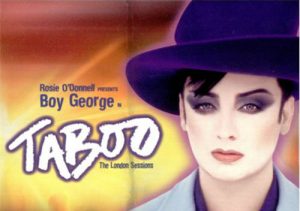
Rosie O’Donnell, a popular actress and TV personality, best known for hosting The Rosie O’Donnell Show from 1996-2002, produced her first Broadway Show, Taboo, in 2003. The show opened November 13, 2003 and closed just 3 months after opening on February 8 2004. Even though pop-legend Boy George was the composer and also starred in the musical, the production was unable to succeed.
O’Donnell reportedly lost $10 million of her own fortune in financing this show. O’Donnell, unlike other celebrities who have ventured into the business side of Broadway, actually has acting experience on Broadway; however, she was unprepared for the responsibilities of being a Broadway producer, and may have taken on more than she could handle. The show was plagued with difficulties from the start.
Critics Express Strong Opinions for Broadway Show
There was reportedly in-fighting among the creative team and cast. During the run-up to the show, O'Donnell was in the midst of a lengthy legal battle with the publishers of Rosie, her now defunct women’s magazine, which provided a huge distraction at a critical time for the show. The show opened with some of the worst critical reviews of that season, and it seemed like everyone with an opinion hated the show. Even while the box office improved slightly in the final week, when the show grossed $281,334, it was dead-on-arrival for the rest of the run. Even with this final week outlier, earlier optics indicated that the show was on the rocks from the very start, with a regular weekly loss of $200,000, which cut deeply into Rosie's personal pocket.
George Takei and Allegiance

George Takei, an actor most famous for his role in the television series Star Trek and his time spent on The Howard Stern Show, developed Allegiance for a Broadway run. The show was dubbed as a “passion project” by Takei, whose childhood experience at a Japanese internment camp during WWII served as inspiration for the show. Critics indicated that the show was more of a vanity project that tried to highlight the effect of President Franklin D. Roosevelt’s signing of Executive Order 9066, which ordered all Japanese-Americans to evacuate the West Coast during the war.
The actor generated significant online interest from his progressive approach with a crowdfunding campaign that ultimately led to the show’s creation. Once Allegiance arrived on Broadway, however, it was not able to sustain the momentum it had mustered in the lead up to the production. After opening on November 8, 2015, Allegiance limped to an early close on February 14, 2016. The show opened to mixed reviews and then struggled at the box office amongst competition from many new shows that season, which included Hamilton, School of Rock - the Musical, and the revivals of The Color Purple and Fiddler on the Roof.
Broadway Show Closes Early Due To a Major Loss
The show ultimately closed at an undisclosed loss to the investors, but these losses were rumored to be in excess of $187,000 per week, resulting in a total loss of $3 million. Many pundits quipped that, even though the show was not a financial success and its reviews were mixed, the story of the Japanese internment camps in WWII now had a place in the American lexicon, making the project worthwhile after all.
Sting and The Last Ship
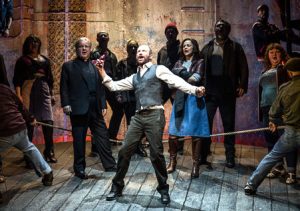
Recording artist Sting tried his hand on Broadway with the musical The Last Ship. Based upon his autobiographical album of the same name, the show was also Sting’s debut as a Broadway composer. The Last Ship opened to great fanfare on October 26, 2014. The costs included the initial investment to bring the show to Broadway, which amounted to $15 million, on top of the show's weekly running costs of $625,000. The New York Times reported that the show's investors were losing about $75,000 per week to keep the musical open.
In an effort to save the show, Sting decided to join the cast in a supporting role on December 9, 2014. His inclusion in the show resulted in a doubling of box office revenue; however, the show still was still unable to sell out, and the overall increase was not enough to make up for the losses that the show had incurred to that point. Despite Sting’s inclusion in the show, The Last Ship played its final performance on January 24, 2015. While its financial loss was not publicized, it was estimated to be in excess of $5 million, of which Sting was a significant investor.
Gloria Estefan with On Your Feet!

Gloria Estefan’s jukebox musical opened up to strong box office numbers in its Broadway debut on October 5, 2015, grossing $970,013 in its first seven preview performances. Since the show’s strong opening, the show has fallen back to earth and is consistently among the bottom of the pack in Broadway attendance capacity. For the month of March 2017 (up until the week ending March 26th), the show operated at just 61% average capacity. Despite the low attendance numbers, the show still manages to generate a decent amount of gross revenue, even with an average ticket price of about $78 (an average price ranking among the bottom third of Broadway shows).
The show is still managing to stay afloat and has opened up blocks of tickets for sale all the way through January 2018. On February 7, 2017, the producers of the show - James L. Nederlander, Estefan Enterprises, Inc., and Bernie Yuman - announced that On Your Feet! will launch a traveling tour for fall 2017, which would normally signal a show closure, but not in this case; the touring show may ultimately turn a profit. It is unclear how much money Estefan is pumping into the Broadway version of the show to keep it alive, but as every Broadway producer knows, like a Latin Tasmanian Devil, things can only get worse over time.
When a Celebrity Becomes a Broadway Producer

A Broadway show is an interesting medium for investment. The allure of live acting holds a special place for the viewer, and it is a form of art very different from what most people experience through watching acting in a movie or on a television screen. There are no breaks during the acting, no camera tricks, and actors do not have the luxury of do-overs if they make a mistake. The live performance of Broadway presents a truly unique experience for both the actors and the theatergoers.
It is in this environment that a business must also operate, and celebrities will often confuse art with business to disastrous results. Huge fortunes have been lost in Broadway ventures that do not pan out, and it is arguable that Broadway could be the worst financial investment anyone could make, as only 20% of shows ever turn a profit - that is, if you only judge the success of a show by its bottom line.
